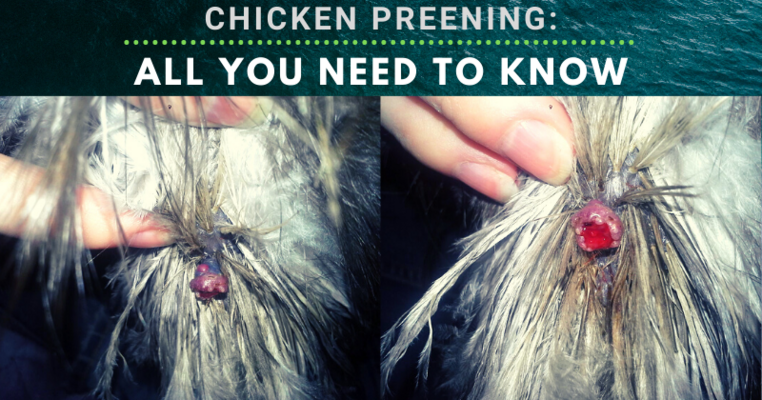If you own birds, you know they poop in their water, on their food, in their nest boxes, and sometimes even on each other while they sit on roost bars. Your flock may seem to be constantly cleaning themselves, but that's not surprising. Although they lack good housekeeping, their personal grooming more than makes up for it. It is instinctual for chicks to dust-bathe and preen in your brooder when they are small.
This is done by their uropygial glands (preen glands), which are located on their lower back, just below the tail feathers, at the base of their tails. In order to put feathers back into place, birds often run their beak along the length of each one. Occasionally, they will bite feathers in order to remove dirt and parasites.
When preening, the bird reaches her head back to the tail, dips her beak into the tail feathers, and leads her head and beak along the feathers. The process is repeated. The preening gland is involved in this part of the grooming process, which secretes a thick, transparent oil that contains extruded cells, ester waxes, fatty acids, and fat. Chickens can pick up and spread the oil by rubbing their beaks or heads against the gland.
Reapplying oils to feathers is also part of preening. Chickens preen by pinching the oil gland at the base of their tails with their beaks. If you wonder why your hen keeps pecking at the base of her tail, it's not because one of her feathers is broken or something like that. Your hen is gathering oil to spread over her feathers.
It is not uncommon for chickens to preen each other in large groups rather than by themselves.
A variety of tumors can develop in the uropygial gland and may require surgical treatment.
Psittacine Beak and Feather Disease (PBFD) is an infection resulting from vitamin A deficiency, trauma, or immunosuppression.


This is done by their uropygial glands (preen glands), which are located on their lower back, just below the tail feathers, at the base of their tails. In order to put feathers back into place, birds often run their beak along the length of each one. Occasionally, they will bite feathers in order to remove dirt and parasites.
When preening, the bird reaches her head back to the tail, dips her beak into the tail feathers, and leads her head and beak along the feathers. The process is repeated. The preening gland is involved in this part of the grooming process, which secretes a thick, transparent oil that contains extruded cells, ester waxes, fatty acids, and fat. Chickens can pick up and spread the oil by rubbing their beaks or heads against the gland.
Why Chickens Preen
Chickens groom themselves by preening. Not only is proper grooming essential for looking gorgeous, but also for ensuring that the feathers function correctly. If feathers are disheveled, they cannot provide insulation and water resistance. During preening, the chicken runs these feathers through her beak.Reapplying oils to feathers is also part of preening. Chickens preen by pinching the oil gland at the base of their tails with their beaks. If you wonder why your hen keeps pecking at the base of her tail, it's not because one of her feathers is broken or something like that. Your hen is gathering oil to spread over her feathers.
It is not uncommon for chickens to preen each other in large groups rather than by themselves.
Are there any problems associated with the uropygial gland?
It is possible for birds on a poor diet (often high fat, all seed diets) to develop vitamin A deficiencies that lead to enlarged glands caused by a plug of fat in the gland. This is corrected by unplugging the plug and altering the diet (especially increasing Vitamin A).A variety of tumors can develop in the uropygial gland and may require surgical treatment.
Psittacine Beak and Feather Disease (PBFD) is an infection resulting from vitamin A deficiency, trauma, or immunosuppression.
Uropygial Gland Issues: Treatment
- Massage a moist hot compress gently.
- If vitamin A is deficient, increase intake.
- Consult a veterinarian if the problem persists. The Uropygial Gland can develop tumors and cancer in chickens.

